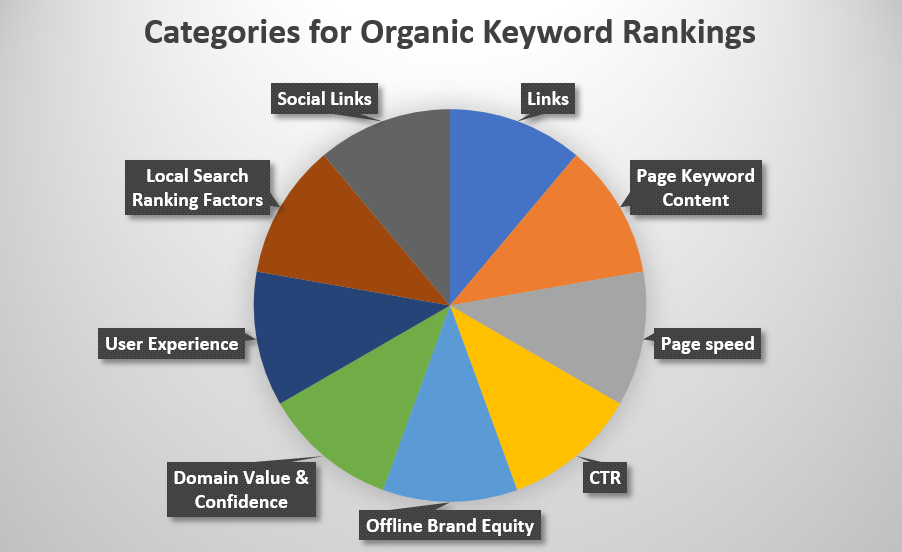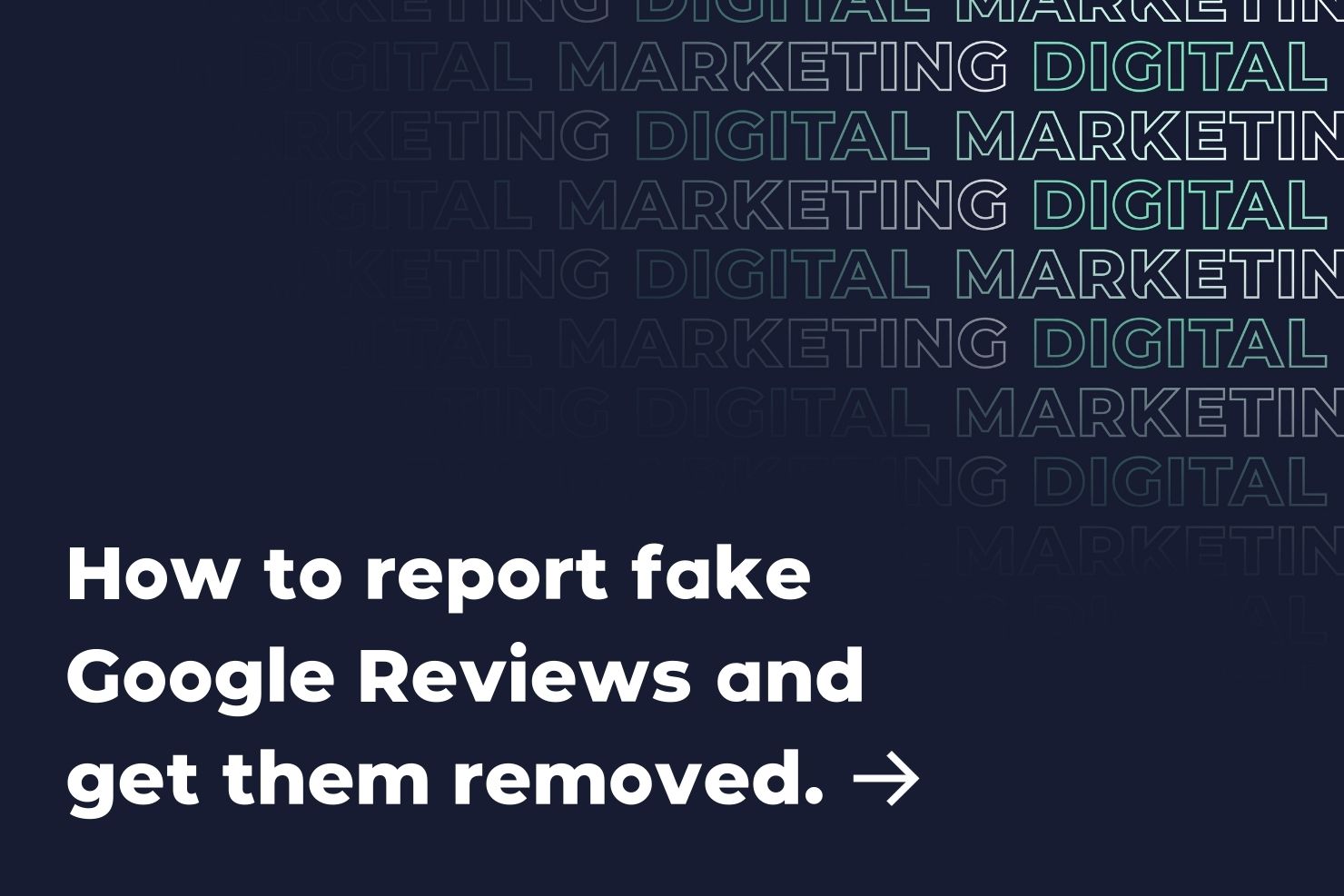Components of Search Engine Optimisation.
What goes in to making a site rank well on Google?
The most important thing to note about Search Engine Optimisation (or “SEO”) is that nobody (outside of Google) knows exactly what goes in to Google's search algorithm - the complex formula Google uses to analyse every page of every website on the Internet.
Even within the walls of Google, there would not be a single human being who knows every aspect of the algorithm – there are many hundreds of people working on it, neverendingly tweaking it.
Add to that the fact there are also human editors, real-life people employed to manually check websites that may be infringing rules that cannot be written into the algorithm and you realise there is just no way you can guarantee you know how your search results may change.
Every SEO company on the planet, including the Digital Marketing Department at Kook, experiments constantly and conducts ongoing research to try to determine why some websites rank well for relevant keywords in Organic Searches (free searches on search engines like Google) while others do not.
SEO is often a long-term battle with Google that involves lots of testing and measuring to determine success. We work tirelessly to get the best improvements for organic search traffic possible for our clients.
In the old days of the Internet, you could get a website to rank well by stuffing it full of relevant keywords and building lots and lots of links back to the website from other websites. But those days are long gone.
Google Wants Visitors to Have the Best User Experience Possible
These days, Google and other search engines are obsessed with providing its users with the most relevant results for their searches, and the user then having the best user experience possible on the website when they click one of those results.
That’s why the answer to ensuring your website has strong organic search traffic is often the same answers to the question “How do I provide the best user experience on my website?”
In terms of the specific categories that go into organic search keyword rankings, we invite you to read on.
The Nine Categories That Contribute to a Website’s Organic Search Rankings
So how do search engines like Google help match up all the billions of websites on the Internet with each search result to help provide the most relevant results possible?
There are arguably 9 broad categories that factor in to Google's rankings in determining how a website will rank for relevant keywords.
It's important to note that Google changes its algorithm quite regularly, so the relative "weight" of each of these categories and how they impact keyword rankings are constantly changing.
Each category can vary between 8 to 20% weight towards the total organic keyword ranking, and the changes can be impacted by what type of search is being performed and the latest updates to the Google algorithm.
For instance, #8 - Local Search Ranking Factors became much more important in a recent Google update than it was previously, and is always key in determining the ranking for any local search (example: “best plumber near me”). So for the sake of simplicity, we’re representing all 9 categories with equal weight in the pie chart below. The 9 categories are:

- Links: The quality and quantity of links from other websites to your website's domain has a huge impact on how well your site ranks. But keep in mind that link building is a dangerous game. It’s rarely encouraged and is not usually a part of Kook’s SEO strategy for any client. The most important thing to remember is that Google is simply too smart to be outwitted by fake links on irrelevant websites. But the fact is that a high-quality link to your website from a relevant website with strong domain value (see #6) will help boost organic search rankings for relevant keywords for your website.
- Page Keyword Content: Google matches all of the visible content on a page as well as the HTML code that makes up a page to the keyword being searched, and ranks the website accordingly based on the quality and relevance of the keywords being searched. “Keyword stuffing”, where keywords are unnaturally added to a page in an obvious attempt to make the page rank better, are often penalised.
- Page speed: Sites that do not load and perform quickly on mobile and desktop will not perform well in organic search results. While PageSpeed scores can be instantly improved, Google can take weeks or longer to update the organic keyword rankings that result from the improved scores. These scores impact roughly 10% of the “weighting” for Organic Search results (it’s arguably the 3rd most important factor in rankings), so improvements in PageSpeed can have a large improvement on sites that perform well in other areas. Google also takes into account how quickly a hosting server responds, so the slower your host the worse your site will rank.
- CTR: Click through rate (the rate at which a link is clicked after it’s delivered) in search results has a huge impact on rankings. So, the more often your link is clicked in search results, the higher your site will be ranked. Engagement data & bounce rate (the rate that somebody visiting your site exits after the initial landing page without further interacting with your site) also has a huge impact. In other words, if somebody clicks your website in search results for a particular keyword but then immediately hits the BACK button on their browser, Google takes that as a sign that your website wasn’t relevant to their search and ranks you accordingly.
- Offline Brand Equity: How much your brand is mentioned in news, media and the press is tracked by Google and plays a part in overall organic search rankings.
- Domain Value & Confidence: Exact match keyword domains (like brisbaneplumbers.com.au for the exact match keyword search “Brisbane plumbers”) still has value in organic search rankings, although not as much as they used to have. Partial keyword matches are still valuable (so joesplumber.com.au is still important for searches for “plumbers near me”). One of the biggest factors we’re seeing is the age of domain. Domains that have been around a long time can outrank newer domains even when the content on the older domain is inferior to the newer domain. Domains with longer names still have challenges ranking compared to shorter domains. Top level domains (or TLD’s) are also important, as Google still ranks .com and .com.au domains higher than newer vanity domains like .ninja or .life, and .edu and .edu.au domains are still very highly valued for any education based business. For ecommerce websites (websites where you can purchase something online), SSL certificates (which result in the website going by https instead of http and a little green “lock” in the browser address line) provides a great deal of consumer confidence and is seen as a positive by Google.
- User Experience: The overall user experience on a website is incredibly important to Google. Google wants to know that users can easily find the most important actions on a website (aka “the conversion goal”). So, if a site is meant for the user to be able to get in touch with the business owner, the contact information would be incredibly important for the user, with a clickable phone number and easy to use online enquiry form. For ecommerce websites, users should be able to purchase the product in a minimal number of steps. For news websites, low bounce rates and high amounts of time spent on each page are very important metrics.
- Local Search Ranking Factors: Since a growing number of searches are users looking for businesses near them, the proximity of a business address to the point of search and the physical address being in the city of search are both very important to local search rankings. Reviews for a business are vitally important, with both quantity and quality of reviews taken into account, as well as the domain authority of the site posting the review (Google loves third party reviews). Google My Business and other directory business listings are vitally important for these listings.
- Social Links: The quality and quantity of links shared via Facebook, Instagram, Google Plus, Twitter, Snapchat, Pinterest, LinkedIn and more have a definite impact on organic search keyword rankings. Google looks at this type of "organic" sharing on social channels as a large indicator as to how much value a brand has online.
Similar posts

How to report fake Google Reviews and get them removed.
Don't let fake Google Reviews undo your hard work.

How to set up your Google app password.
You can setup your Google app password by following the steps outlined in this article.
We're ready to move,
are you?
No lock-in contracts. Guaranteed.
No outsourcing. Guaranteed.
We'll get back to you same day. Guaranteed.
